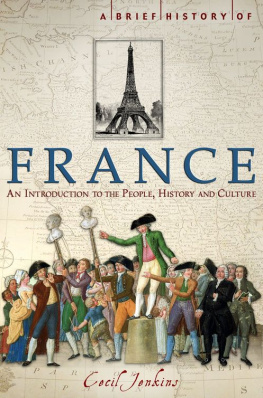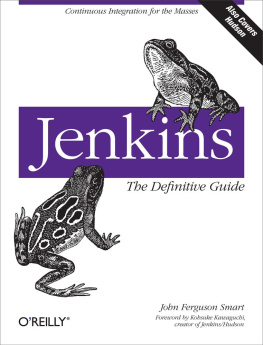Thank you for buying this ebook, published by NYU Press.
Sign up for our e-newsletters to receive information about forthcoming books, special discounts, and more!
Sign Up!
About NYU Press
A publisher of original scholarship since its founding in 1916, New York University Press Produces more than 100 new books each year, with a backlist of 3,000 titles in print. Working across the humanities and social sciences, NYU Press has award-winning lists in sociology, law, cultural and American studies, religion, American history, anthropology, politics, criminology, media and communication, literary studies, and psychology.
The Childrens Culture Reader
NEW YORK UNIVERSITY PRESS
New York and London
1998 by New York University
All rights reserved
Library of Congress Cataloging-in-Publication Data
The childrens culture reader / edited by Henry Jenkins.
p. cm.
Includes bibliographical references and index.
ISBN 0-8147-4231-9 (cloth : alk. paper). ISBN 0-8147-4232-7
(pbk. : alk. paper)
1. ChildrenSocial conditions. 2. ChildrenUnited States
Social conditions. 3. Children in popular culture. 4. Children in
popular cultureUnited States. 5. Mass media and children.
6. Mass media and childrenUnited States. 7. Popular culture.
8. Popular cultureUnited States. I. Jenkins, Henry, 1958
HQ767.9.C4557 1999
305.23dc21 98-24515
CIP
New York University Press books are printed on acid-free paper,
and their binding materials are chosen for strength and durability.
Manufactured in the United States of America
10 9 8 7 6 5 4 3 2 1
Acknowledgments
As scholars, we never fully escape the influence of our own autobiographies. So, in thanking the people who shaped our books, we are also, of course, always thanking the people who shaped us.
First, let me acknowledge Cynthia Jenkins, who has been questioning my assumptions about the nature of childhood since the day we met and who has collaborated with me in the grand experiment of raising our own son, Henry IV, a process that has really tested my theories and (on rare occasions) my patience. She remains both my biggest fan and my sharpest critic, and in both roles, she actively shapes every word that I write.
Second, let me acknowledge my son, Henry IV, who will be leaving home all too soon, but whose presence will always be felt in my thinking about childhood and childrens culture. So much of the work Ive written in the past sixteen years has taken shape around forms of popular culture he brought into my life, and so much of what I know about the difficulties and confusions of growing up in contemporary America was learned by helping him through both painful and rewarding moments of his life. Henry, I am proud of what you have become, a talented young writer, a passionate social critic, and a wonderful human being.
Third, let me thank my parents, H. G. and Lucile Jenkins, who have had the patience and wisdom not only to raise me but also to help me figure out how to raise my own son. Once, when I was just starting this parenting business, I called them, my arm deep within a box of Sugar Crisp cereal, trying to fish out the special prize, to thank them for all that I put them through growing up. Let me thank them again, publicly, and with less sugary fingers, for their patience, courage, and insight. My fascination with the permissive era of child-rearing reflects my attempt to understand better their generation and their hopes for my future. Apart from my general appreciation for their support, I owe a very specific debt to my in-laws, Jim and Ann Benson, who helped to tape the Republican and Democratic National Conventions for me.
I must also acknowledge the intellectual influences on this work, which certainly must start with Eric Zinner, who challenged me to put together such a collection and has shown shrewd editorial skills at every step in the process. This has been a wonderful experience. Shari Goldin has been an invaluable ally in pulling this collection together, and The Childrens Culture Reader certainly benefits from her knowledge and resourcefulness as a scholar of childrens media. I must also acknowledge the ever-watchful Jane Shattuc, who knows exactly when to tell me Ive gone too faror not far enough, as the case may be. I hope that I will never have to release a book upon the world without getting feedback from Jane. I am also in the debt of the students, graduate and undergraduate, who took my Reading Childrens Fiction seminar in spring 1997, and helped me work through (and weed out) the materials for this collection; their questions and comments influenced my thinking on this project more than they probably realize. I would like to thank others who have shaped my thinking about childhood in recent years, including Ellen Seiter, Marsha Kinder, Lynn Spigel, Patricia Gillikin, Eithne Johnson, Eric Schaefer, Linda Dittmar, Kristine Brunovska Karnick, Peter Kramer, Brenda Laurel, Justine Cassell, Tara McPherson, Sherry Turkle, Amy Bruckman, Ruth Perry, Janet Murray, Janet Sonenberg, Eric Smoodin, David Thorburn, and countless others. I have also benefited from tough questions about my work on children and popular culture that have surfaced during my consulting work for Sega, Purple Moon, and Nickelodeon. Thanks also go to the MIT Class of 1942, who have helped to underwrite my research in recent years.
I would like to dedicate this book to the memory of the late Richard deCordova, a committed scholar of childrens culture. I did not know Richard well. We met on only a few occasions, but we shared a similar passion for popular culture and a similar desire to understand more fully the historical evolution of our modern conception of children innocence. We once joked that Richards study of childhood in the 1930s and 1940s would stand on many bookcases side by side with my proposed book on postwar childrens culture and permissiveness. I took some comfort in the knowledge that he would fill in the gaps left by my own project as I struggled to resist the infinite regress that is the occupational hazard of historians. When he died, he was still at only the early stages of his research. I had hoped to reprint part of that work here, but it seems there are only loose piles of unsorted notes. My own book is still yet to be written. But, I know that I will feel a gapan empty space on my mental bookshelfwhere Richards ideas and future books might have gone.











